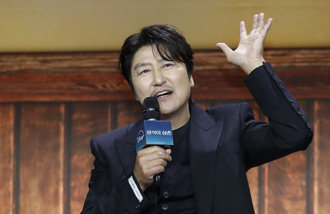Getting over the rivalry with Japan
Getting over the rivalry with Japan
Posted March. 22, 2024 07:38,
Updated March. 22, 2024 07:38
“Let’s go to France together.”
The Red Devil, the official supporting group for the South Korea national football team, held up a slogan on November 1, 1997, at the Jamsil Sports Complex during the 1998 France World Cup Asia qualifier final against Japan: “Let’s go to France together.” While South Korea had already secured its spot in the World Cup Group Stage, Japan needed a victory in this match to qualify for the Group Stage for the first time. Ultimately, Japan emerged victorious with a score of 2-0.
The Red Devils and the Ultra Nippon, the official supporting group for the Japan national football team, continued their camaraderie. When the Ultra Nippon chanted "Korea! Korea!", the Red Devils responded with drumbeats. One Red Devils member, interviewed by The Dong-A Ilbo, expressed disappointment over Korea's loss and relief that their Japanese counterparts found joy in victory.
Simultaneously, The Dong-A Ilbo published an article criticizing Ichiro Suzuki's performance during the Korea-Japan Professional Baseball Friendship Golden Series at Jamsil Baseball Stadium. The article titled "Arrogant Ichiro" highlighted Ichiro's minimal involvement in the match, attributing it to a supposed back injury aggravated six days prior. The article even speculated that Ichiro intentionally avoided batting out of fear of embarrassment against a Korean pitcher.
Shohei Ohtani, often regarded as Ichiro's successor as a star player, enjoys significant popularity in Korea. In the "Seoul Series," the Major League Baseball’s regular season opener, Ohtani, now with the Los Angeles Dodgers, garnered attention by making a heart gesture alongside the Korean national flag. He further endeared himself to Korean fans by expressing his fondness for the country by saying that Korea is one of his favorite countries, strengthening the bond between players and fans.
However, it remains questionable whether Korean fans would reciprocate the same support for Son Heung-min, a Tottenham player, if he were to make a similar gesture in front of the Japanese national flag and express affinity for Japan. While Ohtani's actions excited Korean fans, the prospect of Son doing the same before the Japanese flag carries a risk of criticism.
South Korea and Japan both advanced to the Group Stage of the France World Cup, marking a significant moment in their shared football history. Three months after the conclusion of the World Cup, President Kim Dae-jung addressed the Japanese Parliament, emphasizing the folly of disregarding centuries of exchange and cooperation over a mere few decades of strained relations. However, despite politicians claiming to uphold the "Kim Dae-jung spirit," many are exacerbating anti-Japanese sentiment in the lead-up to the general election.
The Red Devils' ability to support Japan's journey to France stemmed from South Korea's position of having nothing to lose, even in defeat. As South Korea has grown in strength, it can now humorously dismiss the notion of Son Heung-min smiling before the Japanese national flag as a mere "smile of Capitalism." What is truly humiliating would be the persistence of one-sided hostility towards Japan, described by Japanese media as "anti-Japan sentiment without Japan."







